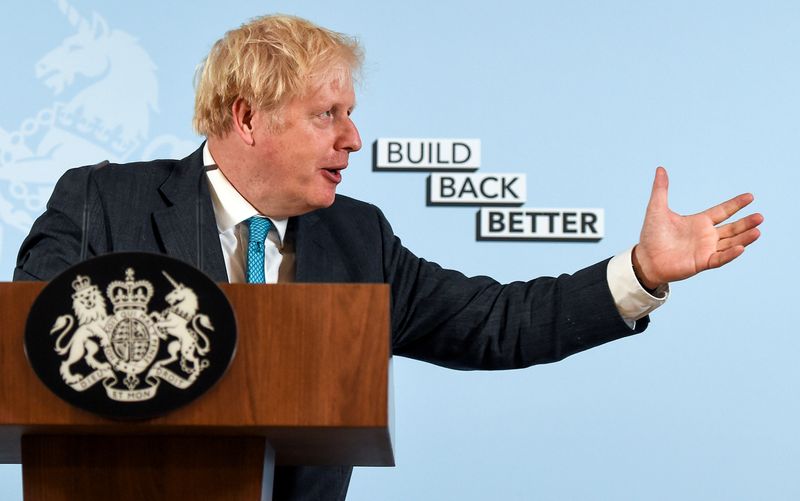LONDON (Reuters) - British Prime Minister Boris Johnson will hold a news conference on COVID-19 on Wednesday as he grapples with a swiftly spreading second wave of the novel coronavirus outbreak and growing anger in his own party over restrictions imposed on citizens.
Britain, which has the worst official death toll in Europe, reported 7,143 new cases of coronavirus on Tuesday, the highest single figure to date, and 71 deaths, the worst daily toll since July.
Johnson, who has had to apologise after muddling local lockdown rules, is facing growing anger within his own Conservative Party over the most severe restrictions in peacetime history that are destroying swathes of the economy.
"The price we will not pay is that we will not surrender parliamentary democracy and the rule of law in order to fight this virus - these things are too important," said Steve Baker, one prominent rebel lawmaker in the party.
"We need prior approval of measures, major measures on a national scale and indeed a regional scale which take away people's liberties," Baker told the BBC ahead of a debate in the House of Commons on Johnson's COVID-19 measures.
Large swathes of the United Kingdom and tens of millions of citizens are subject to local restrictions brought in to try to slow the second wave of COVID-19 infections. The country has reported more than 42,072 deaths from the virus - the world's fifth highest number of fatalities.
As Johnson grapples with both COVID-19 and dissent in party ranks, the economic damage was laid bare: the United Kingdom's economy shrank by a record 19.8% in the second quarter of 2020 - more than any other major advanced economy.
The United Kingdom is borrowing more than at any time since World War Two while unemployment is rising and some businesses have complained that Johnson's restrictions are killing their livelihoods.
Johnson, who fell gravely ill himself earlier this year with COVID-19, says the virus must be brought under control otherwise the death and economic damage it will inflict will be much more serious.

But a series of missteps by the government, a lack of enforcement and growing fatigue with the regulations have prompted growing unease - and even some confusion - over the COVID-19 restrictions.